Board of directors tried to change the terms of ballot after its passage
 And ultimately failed in court
And ultimately failed in court
The Association erroneously maintained for over a year that a homeowner owed late fees on a special assessment.
Letters, emails, and face-to-face meetings with president Sherry Mallett and vice president Milena Marsico were not effective inattempting to resolve this: the association defended their bad decision until a court told them they could no longer.
The association's lawyer, Steven Weil, was of no help and sent pompous letters saying the claim had "no merit." The judge had a different opinion than that of Mr. Weil.
September 30, 2002
The memo and ballot that started it all.
Ballot specifically reads: "...will be interest free and can be paid in full at any time without penalty or interest ."
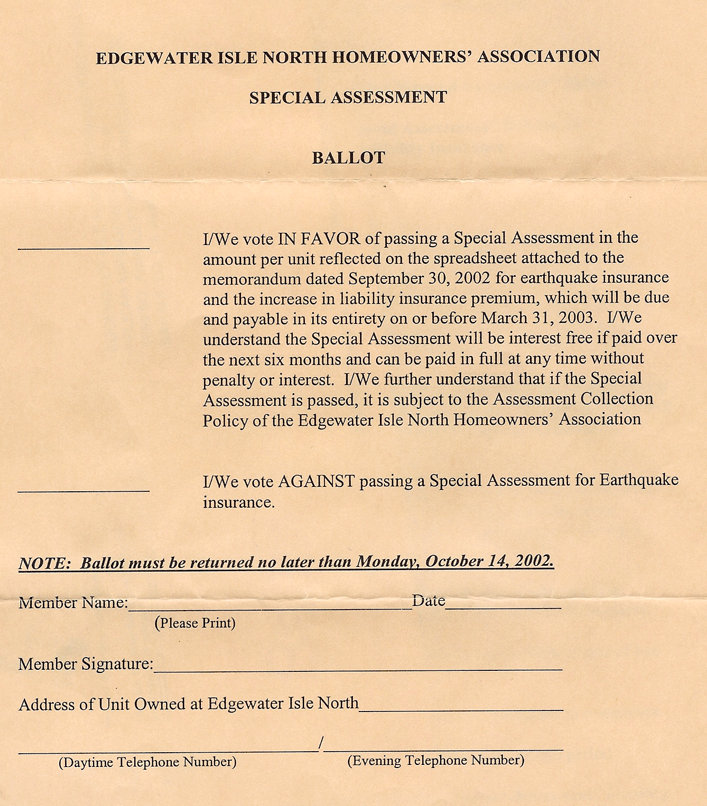
And the memo specifically reads: "payment can be made one of two ways...."
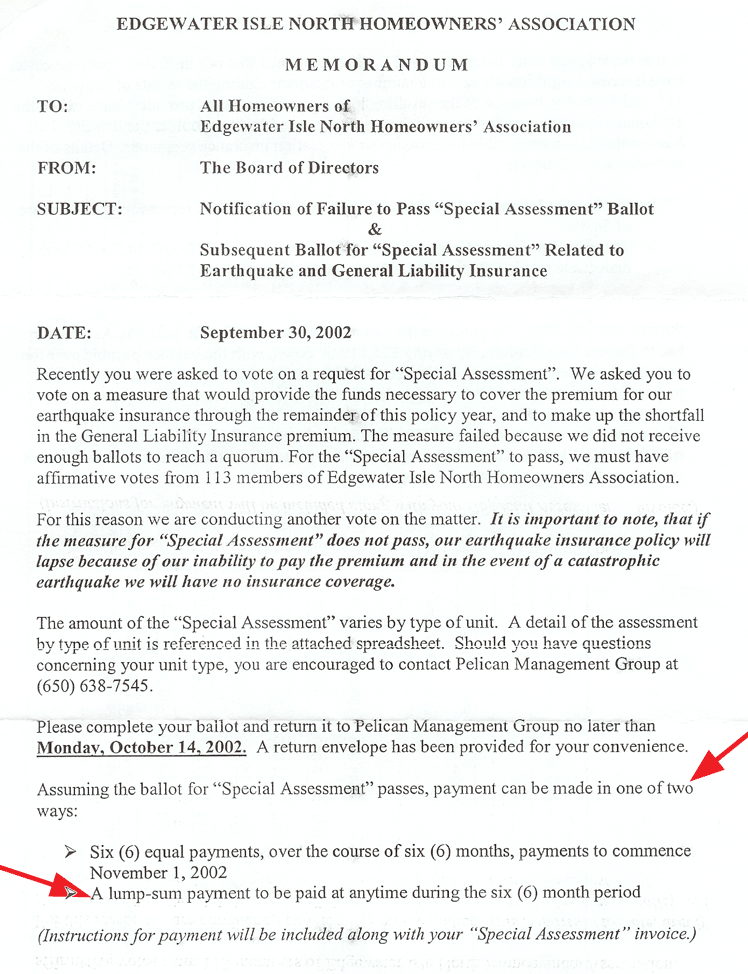
November 7, 2002
The memo that accompanied the news that the ballot had passed.
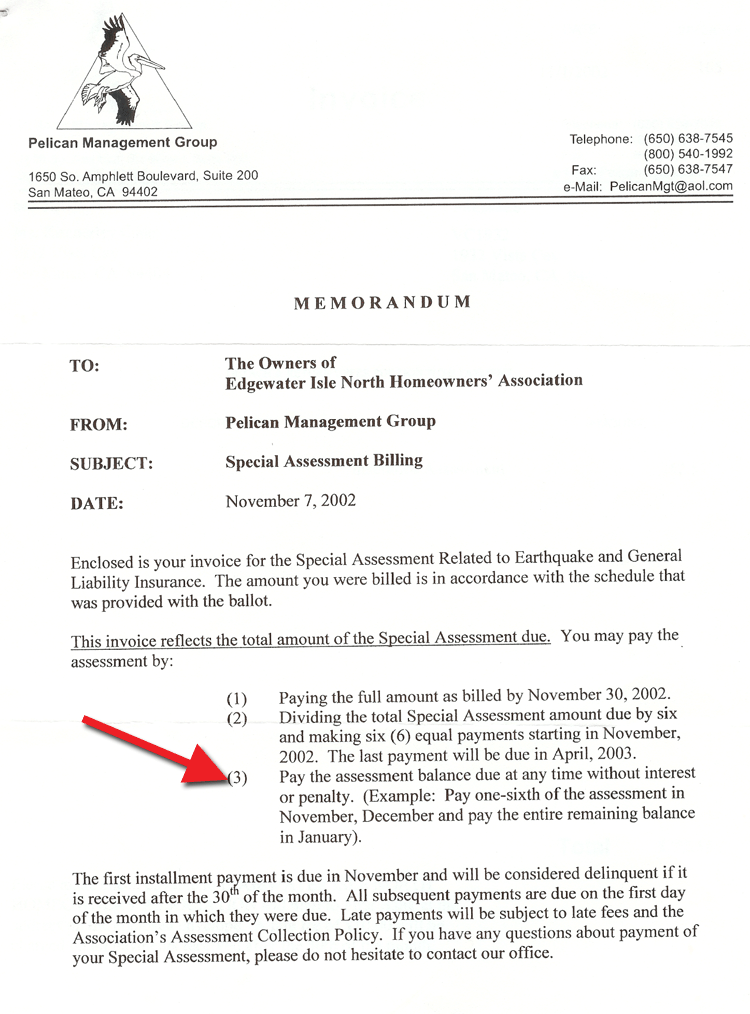
Well, now we have 3 ways to pay, whereas in the memo accompanying the ballot we had 2. But regardless, the ballot is what was voted on and that should dictate the payment terms.
March 25, 2003
Special assessment paid.

July 11, 2003
Wait, huh? Late fees charged for the special assessment?
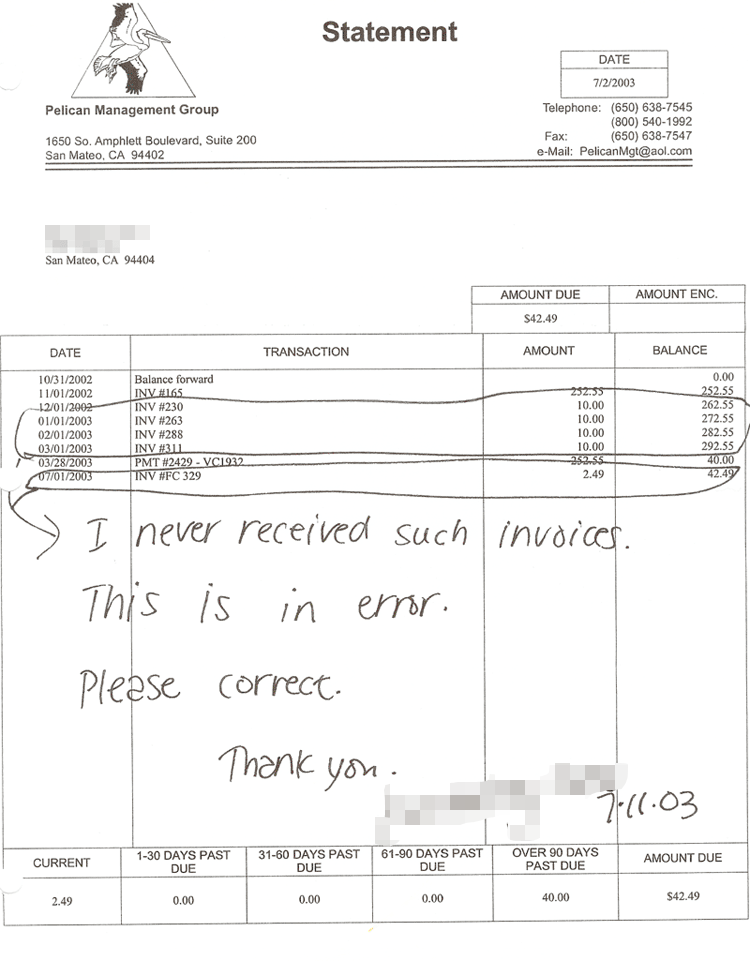
Pelican Management Company failed to reply to communication sent back to them noting the error.
August 8, 2003
Pelican Management Group did not reply to the first inquiry, so a second was sent. Certified. That time, they got it.
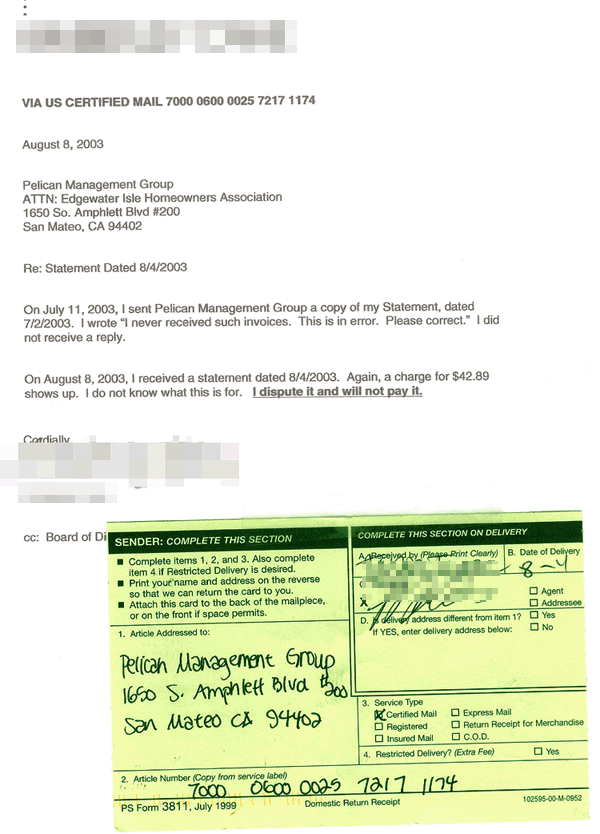
August 20, 2003
At their request, homeowner met with President Sherry Mallett and Vice President Milena Marsico at 7:00 p.m. at Starbucks in Foster City to talk about the late fee dispute. The Association representatives were shown where in the memo it states "at any time" and followed up with an email. It was all a waste of time.
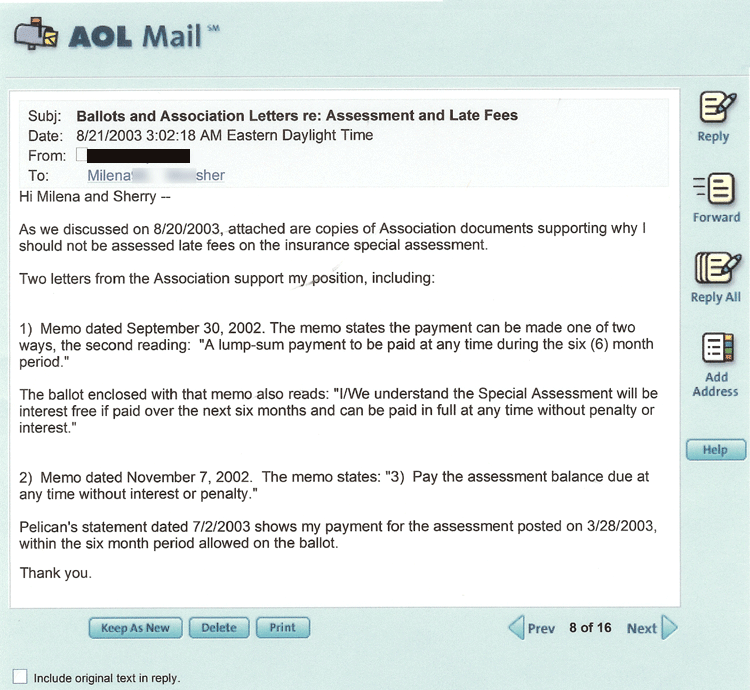
August 25. 2003
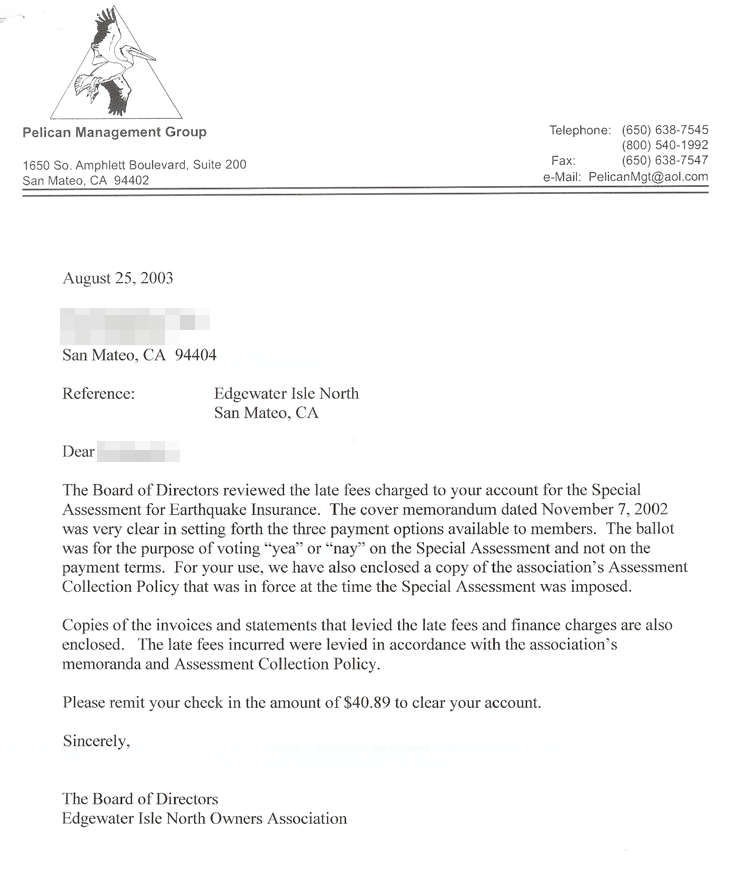
We're well down the rabbit hole now. "The ballot was not for voting "yea" or "nay" on the Special Assessment and not on the payment terms." These people are drinking tea with the Mad Hatter.
August 29, 2003
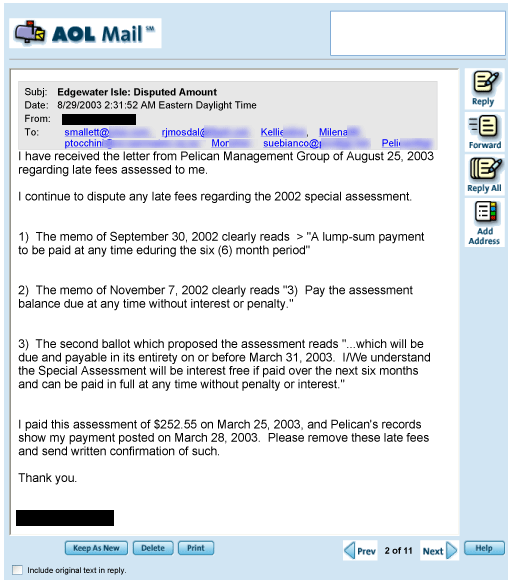
September 22, 2003
Now the association attempts intimidation by dragging out a lawyer who has obviously not read the ballot.
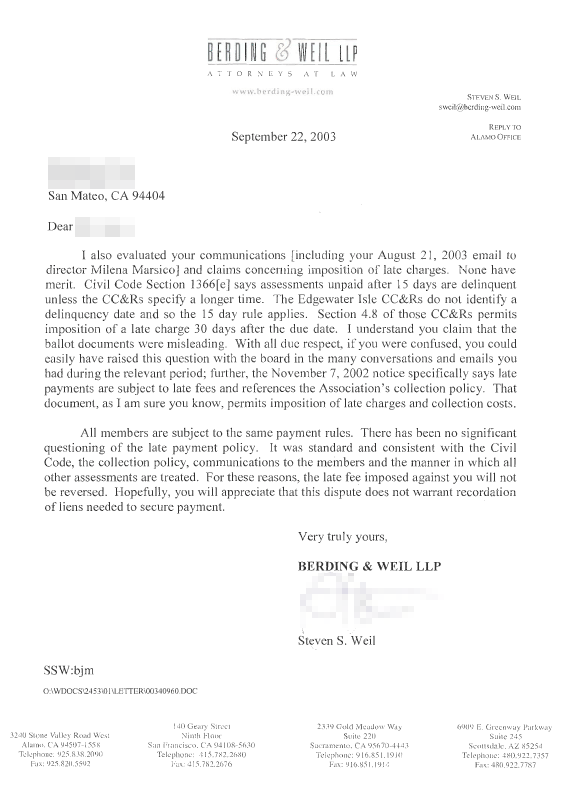
October 8, 2003
Attorney Steven Weil still hasn't read the ballot, but sends along this lovely note.
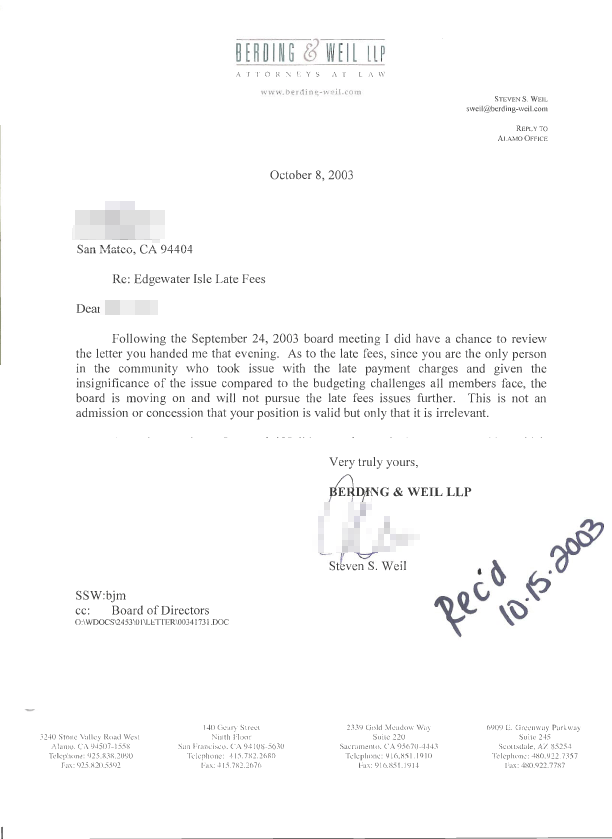
This is the typical tactic of a homeowners association attorney: attempt to belittle a homeowner with the "you are the only one who had this problem." Nice try, but it's really very obvious they are just defending their bad decisions.
October 14, 2003
Paid amount due in protest.
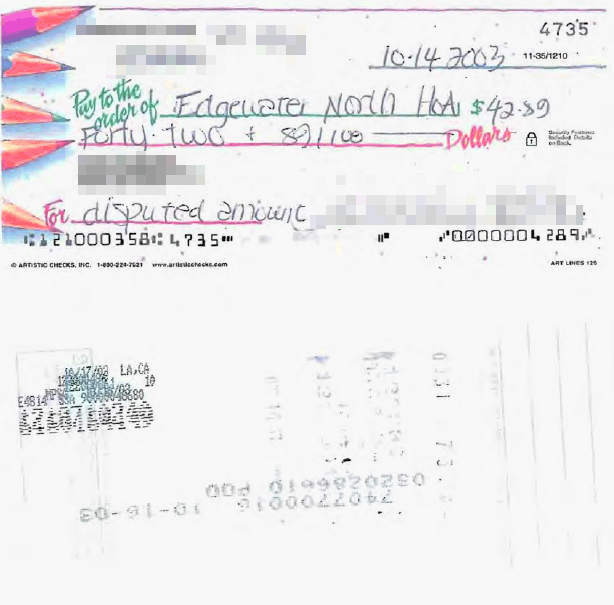
How much did the lawyer letters cost? More than the $42 bucks, to be sure.
December 11, 2003
Oh no. This is becoming a full-time job.
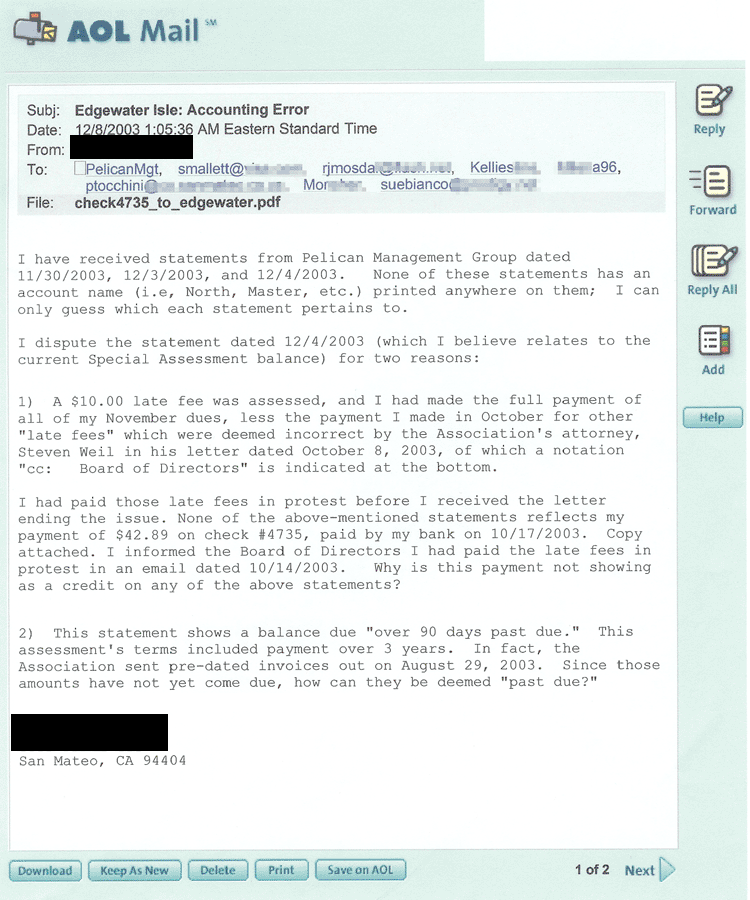
January 6, 2004
Letter from Property Manager attempting to cover for inane board of directors.
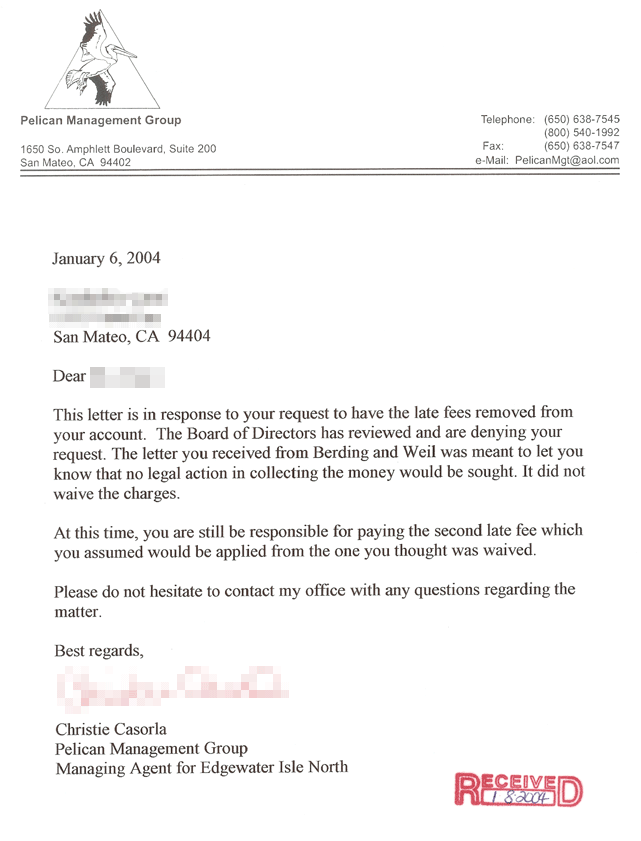
January 26, 2004
Small claims court case filed: Kimberley Cane v Edgewater Isle Homeowners Association.
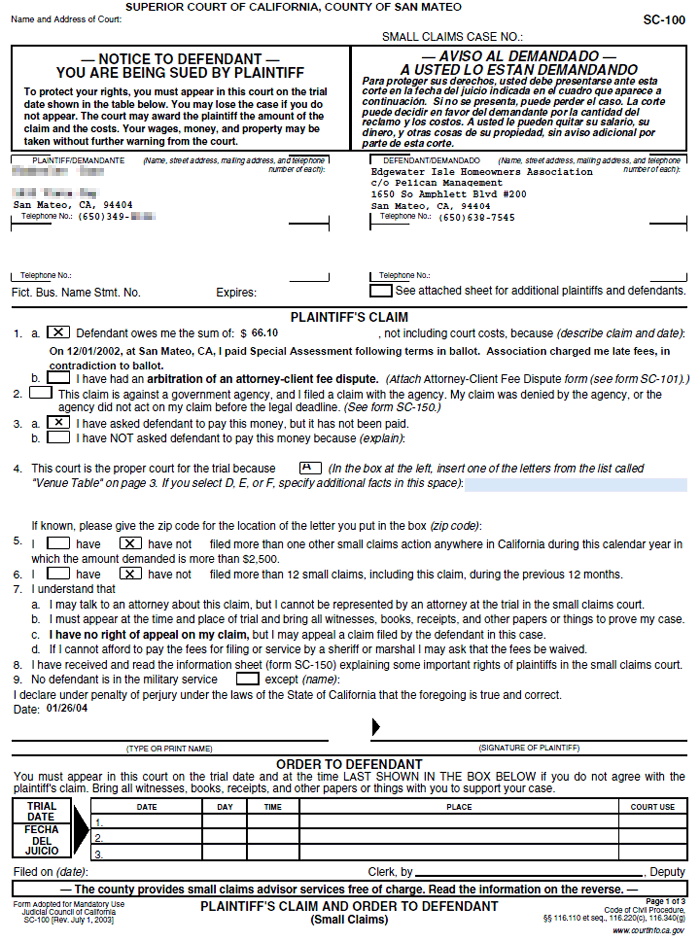
February 26, 2004
Association representative Kelly McGuirk presents Association's defense that Association is allowed to charge late fees and provides the Association payment collection policy. Small Claims Commissioner asks Kelly McGuirk where it says in Collection Policy where the Board can change the terms of a ballot after it has passed.
EDITORIAL COMMENT: 
March 4, 2004
Superior Court finds against Edgewater Isle North Homeowners Association, in favor of Plaintiff, awards ERRONEOUS late fees plus additional costs.
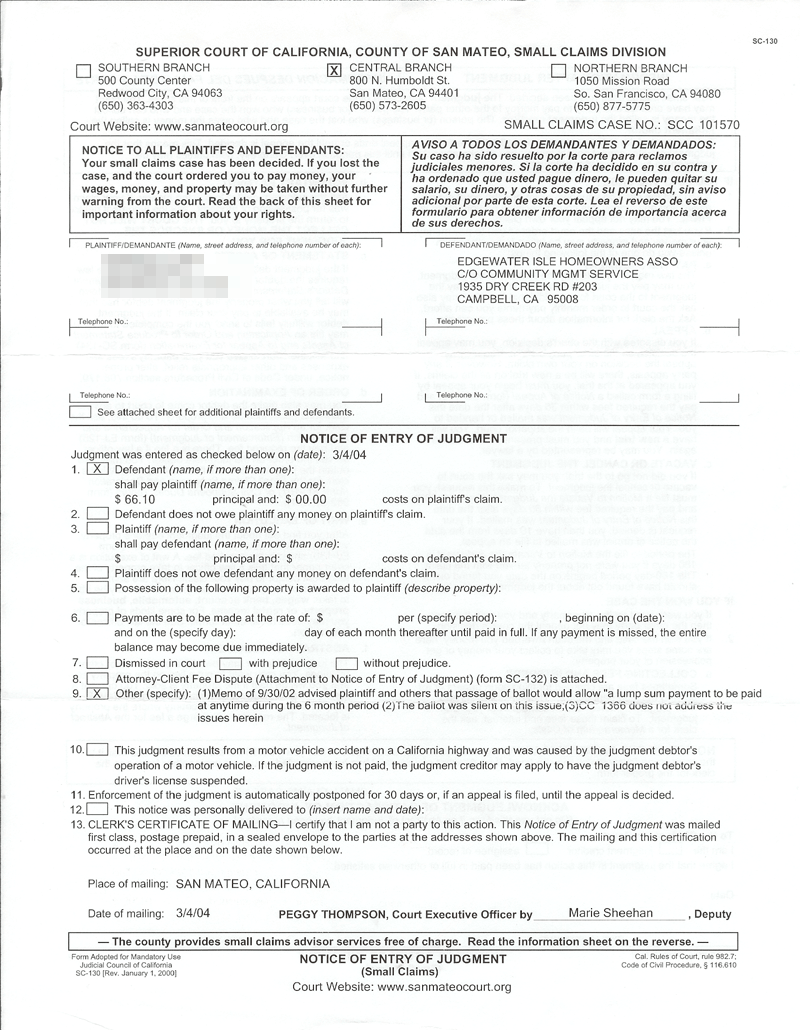
That was a lot of work for a measly $66. But seriously, why should the homeowners take it in the shorts every time a board of directors drinks the Mad Hatter's tea?
The Edgewater Isle North board of directors doesn't about how much money they spent on their attorney and attorney's letters. They just spent homeowners' money defending bad decisions instead of just admitting they made a mistake.
 Contact
Contact